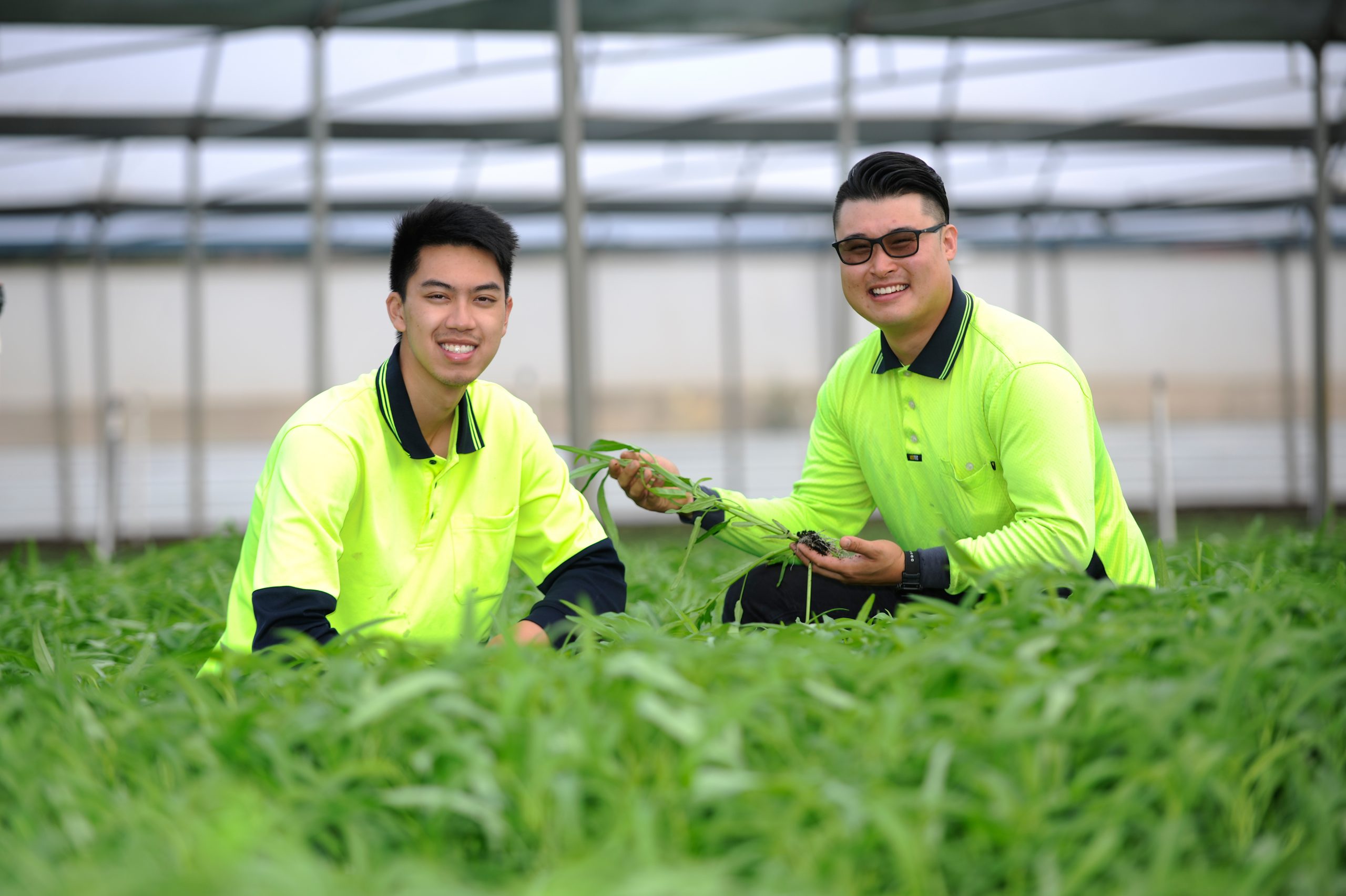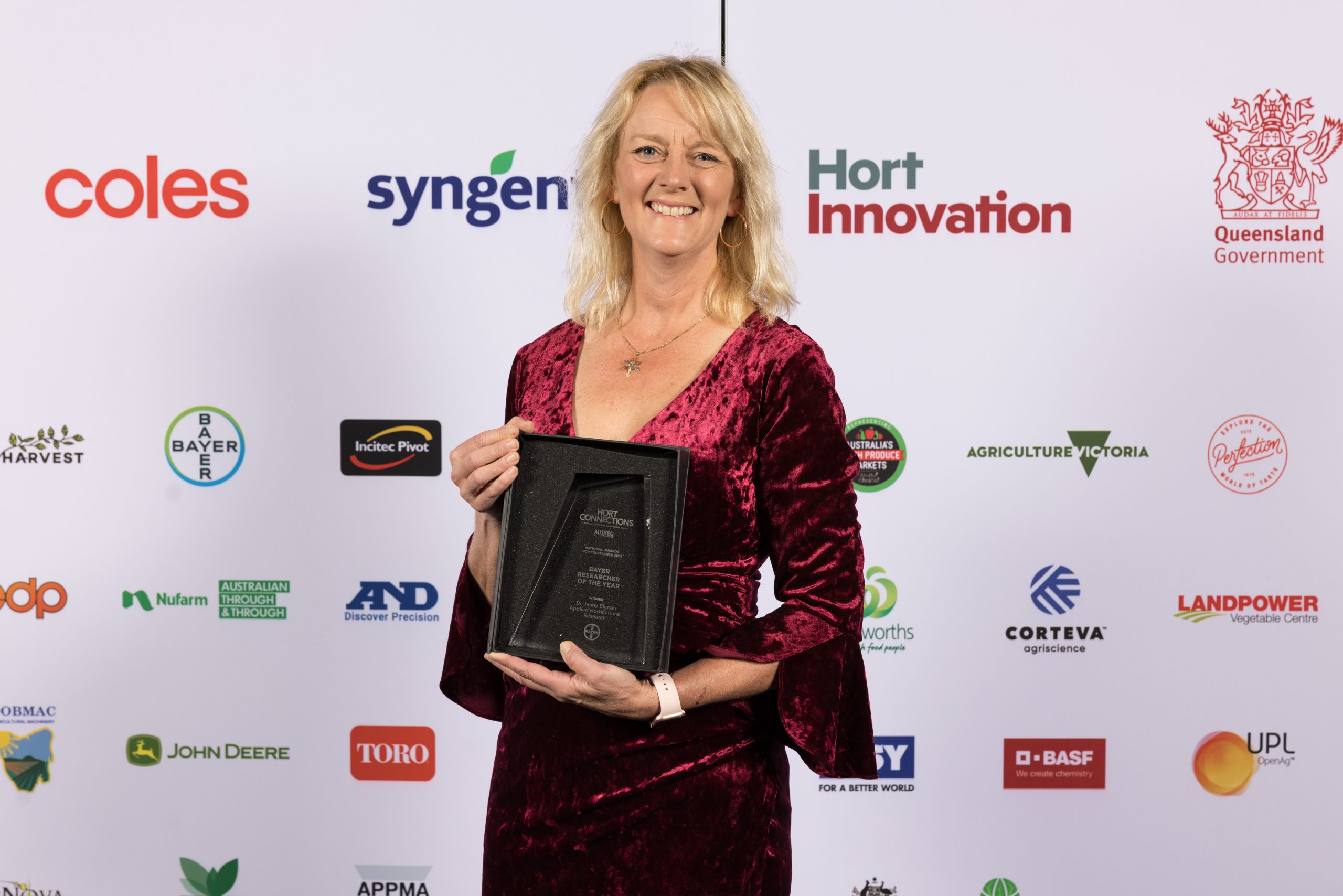
Celebrating a successful career in horticultural research and extension
13 May 2022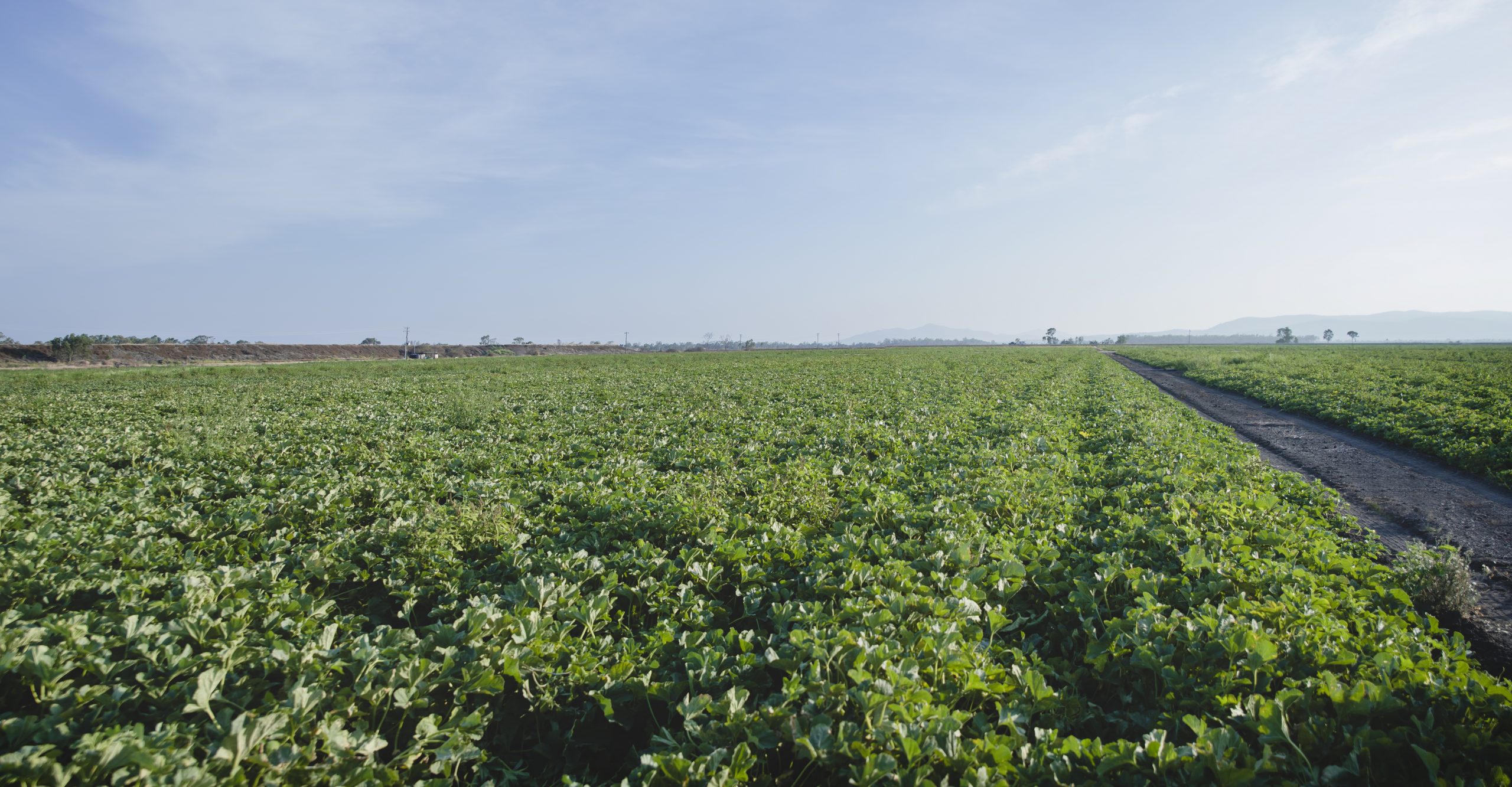
Introducing your VegNET Regional Development Officers: Andrew Halpin and David Shorten
13 May 2022Fast facts
Name: Neco Vo and Simon Vu (pictured right and left)
Age: Neco: 28; Simon: 22
Location: Neco: Carabooda, Western Australia; Simon: Neerabup, Western Australia
Works: Neco: Thinh Van Pty LTD; Simon: KM Vegetables
Grows: Neco: Asian veg and spring onion; Simon: Asian veg, lettuce variety, herbs
Neco and Simon, how did you first become involved in the vegetable industry?
Neco: I have been in the industry ever since I can remember as a young boy at the age of around seven. I grew up in Carnarvon, Western Australia and was there until I reached high school, before moving to Perth to pursue a higher education. However, as fate has it the vegetable industry has pulled me back to my childhood roots.
Simon: I have been in involved in farming since I was about eight and have been coming up to the farm during weekends, school holidays and working weekends outside of my office job. About two years ago, I resigned from my role to commit to being full-time on the farm.
What are your roles in your respective businesses? And what are your responsibilities connected to those roles?
Neco: My role changes every day to suit the flow of the business. I’m mainly in charge of cultivating; for example, tractor work, seeding and ploughing.
My work does require me to be flexible and work around conditions outside my control, such as the weather, humidity and rain – which affects many areas of production.
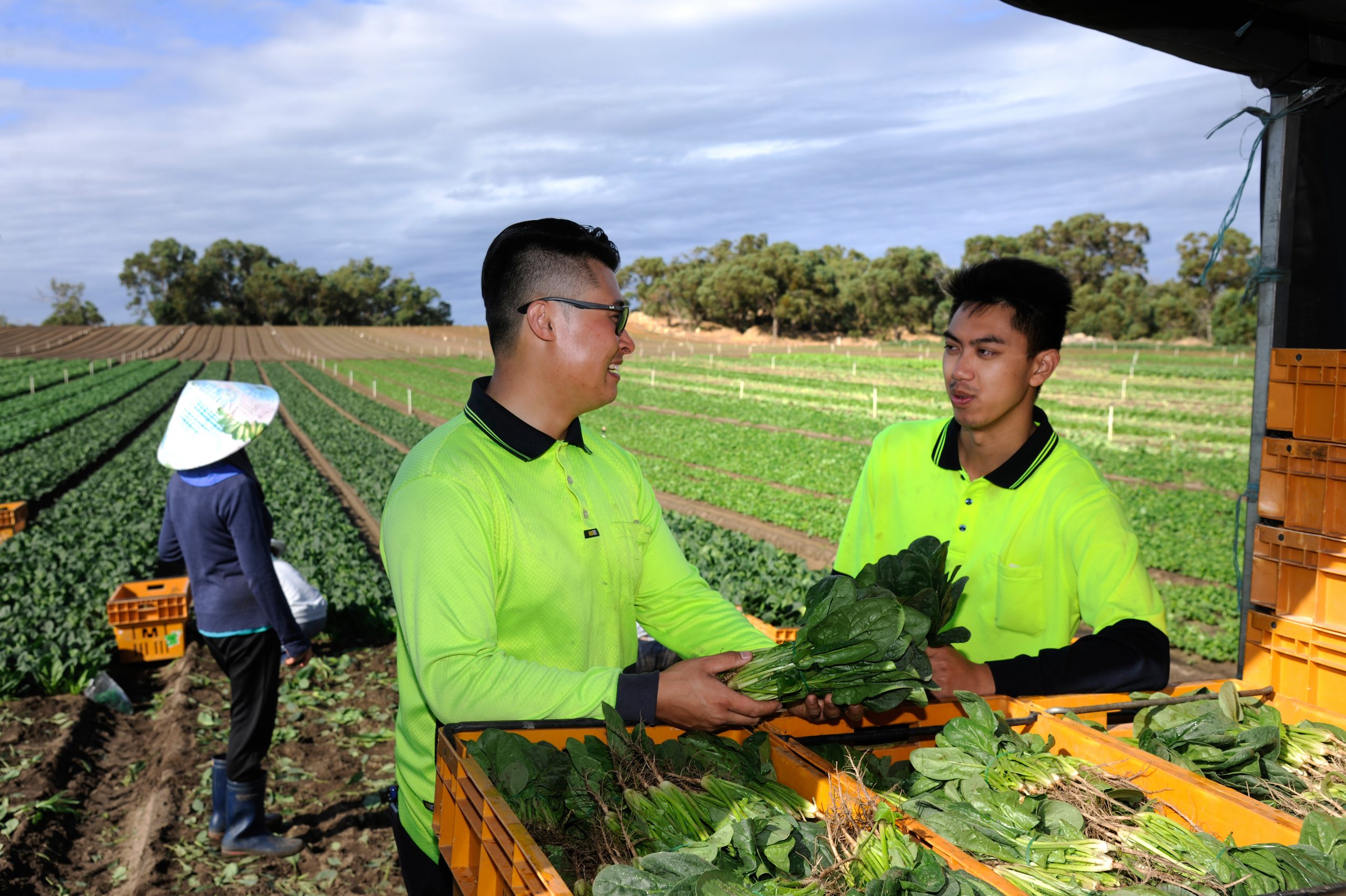
What are the biggest challenges that you have faced working in the industry so far, and how do you overcome them?
Neco: My biggest challenge would be finding new and progressive ways of running the business that reflects the current market better. With new technology and research, it can be hard to not only keep up – but implement it in a business that was founded 20 years ago.
You’re friends outside of the vegetable industry. How have you supported each other during this time of transition?
Neco: It is important to have a supportive network. I have friends who are understanding of my situation and supportive of my goals.
Regardless of being time-poor and heavily involved in the business, I’ve learnt that maintaining friendships, family time and creating a work-life balance is just as important.
Simon: Our role and our line of work can be demanding in many aspects. Some days we just have to accept that we can’t do everything by ourselves.
The beauty of having a friend who shares the same responsibilities as me is that we can support one another during difficult situations.
An example is: as we grow similar lines, we can supply stock to the other when needed and vice versa. Both sides have an ever-expanding network of contacts, and we are also able to share or refer one another to a group that could assist with a specific situation.
General things like tips, advice information and/or personal experiences all come a long way helping both parties grow as individuals.
"Each individual has different aspects that they take from the mission experience. This can help explore diversification with farming, helping Australia grow in the horticulture sector. "
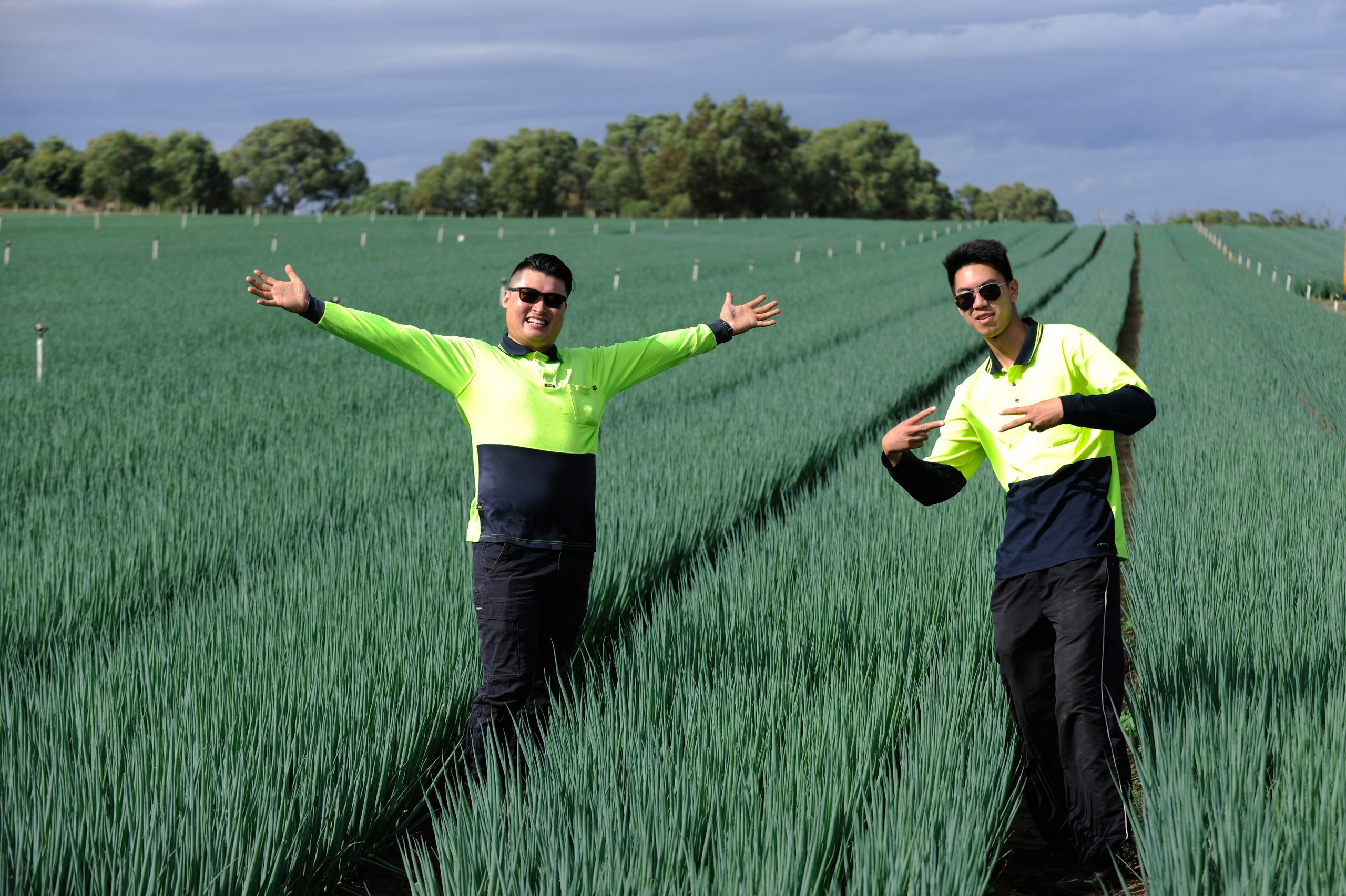
Where do you receive your on-farm practice advice and information from?
Neco: Most of my on-farm practice advice is from my father. The information is not written down anywhere, but all in his head. He has a wealth of knowledge. I always have a pen and notebook ready when spending time with him.
Simon: My initial practice for all field work activities were provided by my dad. He has been in the industry for about 20 years, so he has plenty of experience under his belt.
Although a little old-fashioned and stern, he has supported me in many ways and given me many opportunities to grow. Most information and advice I seek is provided by external parties (agronomist, machinery specialist, Neco etc.).
What new innovations, research and/or practices have your businesses implemented recently? What are you doing differently to other growing operations?
Neco: As research and innovation continues in the chemistry department, I am always trying new programs to better the yield and safety of crops, testing soil compositions for environmental impact and providing feedback to the companies to better their products.
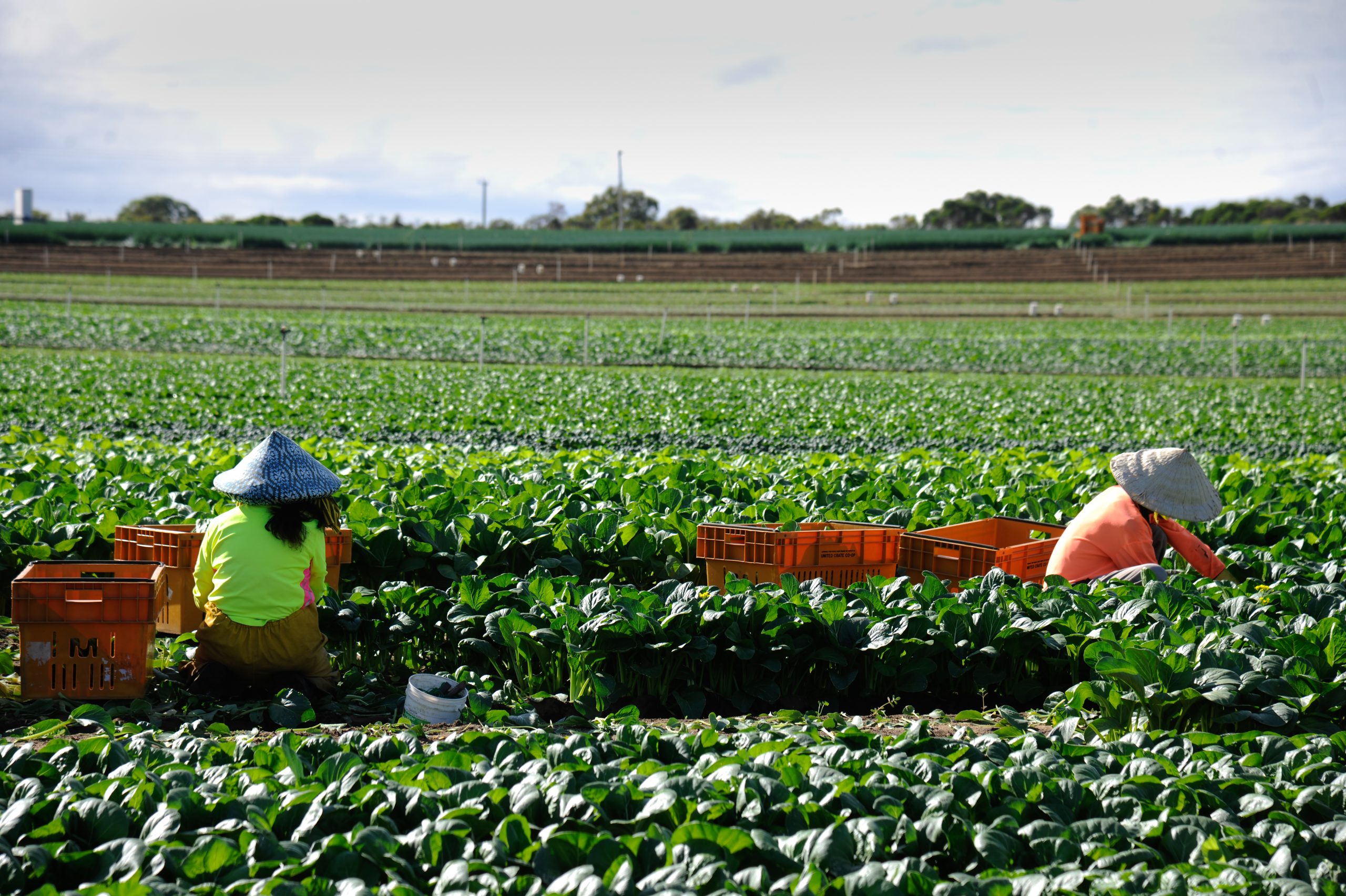
What do you both enjoy most about working in the vegetable industry, and how do you maintain your enthusiasm?
Neco: “You reap what you sow.”
Taking that quote literally describes the enjoyment I feel about working in the vegetable industry. All my efforts – as well as everyone else’s hard work – is rewarded at the end of each harvest.
Simon: From being heavily involved with colleagues, clients, buyers, agents and suppliers, to conducting individual field work throughout the day – I find that farming is a great mixed setting for my social introverted personality.
Being in control of my own work means I can excel at my own pace, but I am also accountable for my actions.
Maintaining enthusiasm is difficult. There are days where so many things go wrong and a lot of the time, they are caused by factors outside of our control.
Personally, I find motivation in accomplishments and small wins. The knowledge gained after facing challenges can often be extremely rewarding.
Where do you see yourselves in five years’ time?
Neco: I still see myself shadowing my father because he still has so much for me to learn from for the business and in life.
How do you think more young people could be encouraged to study and take up jobs in the vegetable industry?
Neco: Having more opportunities and programs out there informing people that the vegetable industry needs more young minds. There are many areas in the industry that have yet to be re-engineered.
Simon: I believe there are curricular activities and events out there for young minds to participate in that helps to introduce them to the vegetable industry.
My school did not offer these, but if horticultural and agricultural studies were made more available to students in high schools, I would like to think that it could create opportunities for many individuals to engage in higher studies.
This would ultimately lead to research of more efficient practices, accurate information, money saving and overall better conditions for workers and produce.
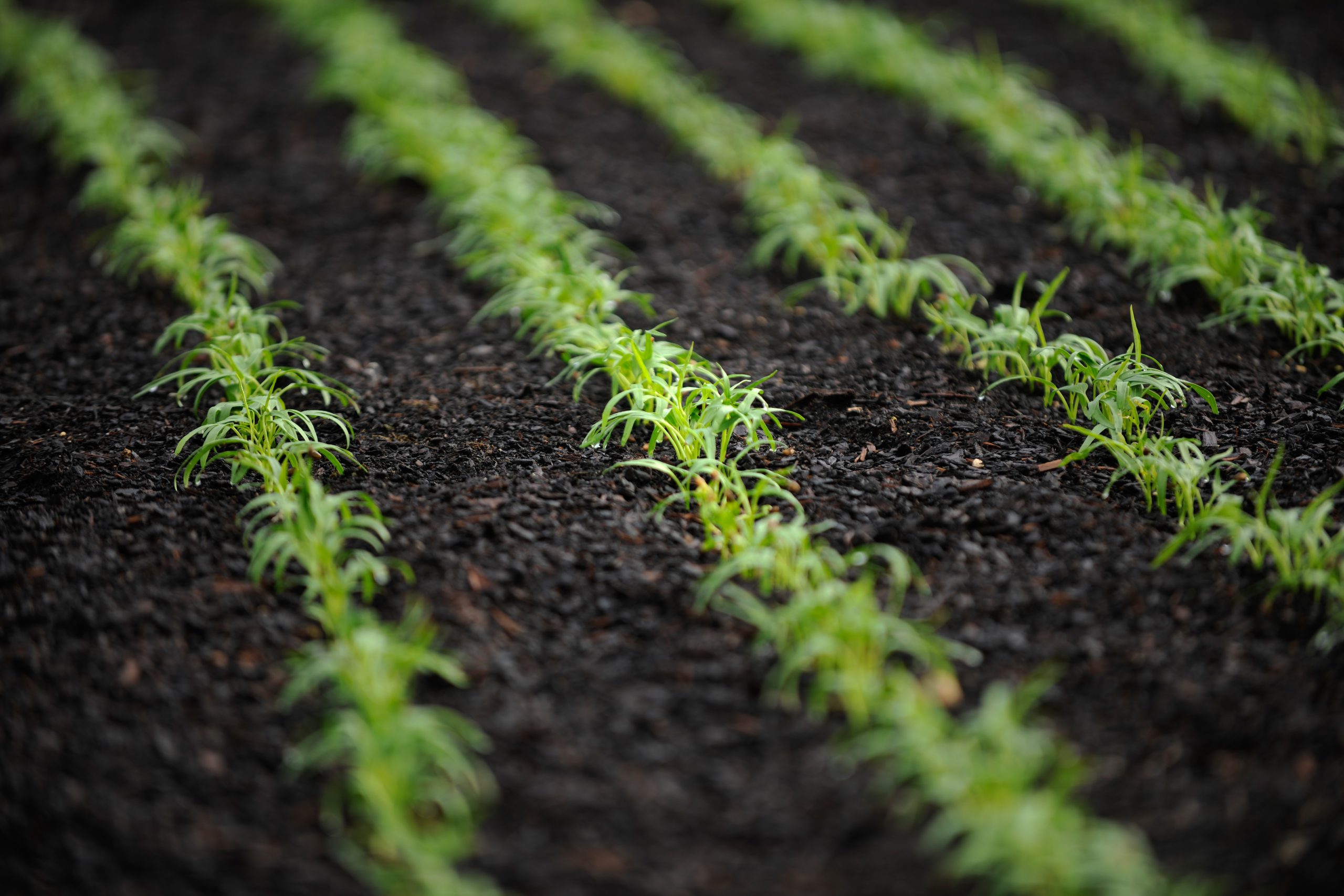
This ‘Young grower profile’ first appeared in the leading magazine for the Australian vegetable industry, Vegetables Australia. If you’d like to subscribe to receive a new edition of Vegetables Australia in your mailbox every three months, use our online subscription form!
Photography credit: Chris Kershaw.

